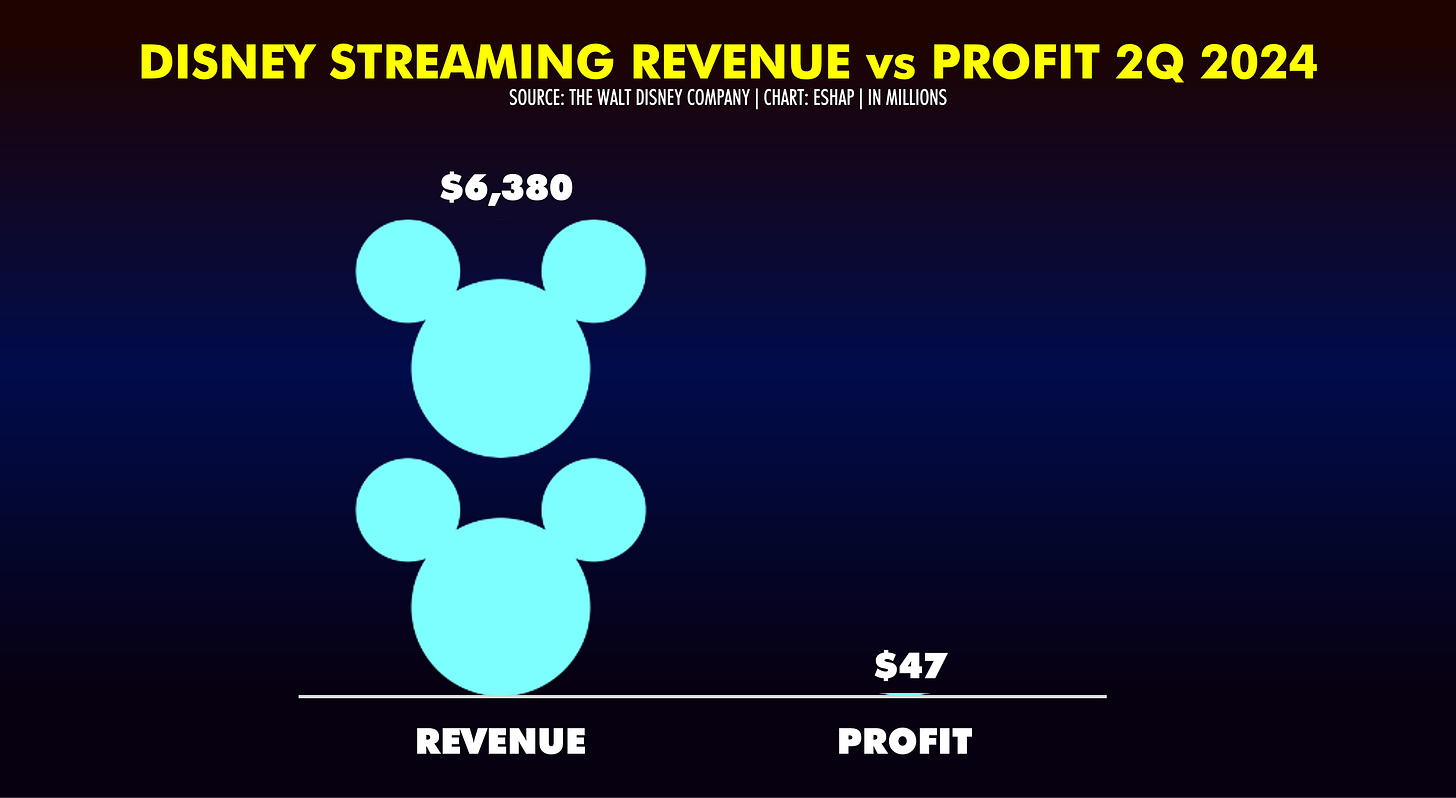Happy Fall War & Peaceniks. Are you ready to tell the truth? I’ll start…
I dropped out of college, but then told everyone I graduated early… until they found out otherwise. I got fired from Participant over a power struggle with the CEO, that I lost. After four bosses in two years, I got shitcanned from NBCU for “operating around centralized corporate systems.” I partnered with a total gonif on National Lampoon and got swindled, because I thought I was smarter than him, which, it turns out, I was not.
These are my truths. This is me being transparent. It’s pretty uncomfortable. It is also far less normal, now, than it should be.
This summer, Tubi CEO Anjali Sud told the Verge that Tubi is not yet profitable, and that this was a choice they made to invest in the platform - an investment that seems to be paying off. Her answer, however, provided more than strategy. She offered something even more rare in Media these days: Honesty.
“We could be profitable if we wanted. It is more of a capital allocation decision.”
Sud said something many of us already knew, but few in corporate media want to admit: The recent spurt of profitability for streaming services inside big Media companies is basically an accounting trick designed to satisfy Wall Street. Disney’s small-yet-very-timely streaming profit is based as much on write-downs, write-offs, and asset reallocations as it is on sound business models. The same can be said for the streaming divisions at Paramount and Disco Bros.
Tubi isn’t profitable. Why should any nascent streamer be at this stage? We cannot determine the bottom line of Prime Video, who just broke the bank again to steal the NBA from WBD. Sure, YouTube is worth $400 billion. But is it profitable? Unless Google gets broken up, we may never know. For that matter, Netflix has reported nice profits for years, but (notoriously in Hollywood) their jerry-rigged content amortization practices are a BIG part of how they are able to spend as much as they do, yet still show up in the black.
All of Big Tech and Media C-Suites play this game. Even stock darling NVIDIA, despite amazing quarterly earnings in 2Q, played pretty fast-and-loose with information about the next generation of chips meant to keep their meteoric climb apace.
But of all the Media shell-gamers, Netflix is the clear leader for purposeful obfuscation in pursuit of increased market capitalization. And their overt opaqueness is becoming all the rage in Hollywood and Silicon Valley. There are countless examples I could offer. But a particular one from last month epitomizes Netflix’s cheesecloth-covered announcementology.
“On Tuesday, Netflix said it netted a 150% increase in ad sales during upfront negotiations compared to last year. Investment came from brands across multiple verticals, including travel, auto, retail, fast food and consumer-packaged goods.”
Wait for it…
“But Netflix declined to share hard numbers, so there’s no baseline to know how its year-over-year growth translates into ad dollars.”
For those who aren’t good at math let me do it for you:
Netflix has been hiding the weenie on their ad business since its launch. We have no idea how many subscribers they have on their ad tier, because their data is always just as convoluted as “150% of something.” But I’ve seen reliable data – coming to you very soon – showing that Netflix’s advertising platform garners less viewership than Tubi, Pluto, Peacock, Paramount+, and Prime – as well as Investigation Discovery, AMC, and Hallmark Mystery Channel. Netflix’s ad tier has 9X fewer viewers than MeTV.
Netflix just fired their second super-senior ad exec in less than a year. They generate very few ad impressions. But when they dropped a press release blowing smoke about a 150% increase in the upfront, the trade press dutifully cut-and-pasted it, and Netflix’s stock rose 2% that day - making all those who crafted the release richer.
It’s a neat trick.
So I wrote a LinkedIn post about it. It got a lot of attention. Then the press wrote about my LinkedIn post. Very meta. I can’t really hate the player. Netflix plays by the rules and they do so better than most. But it is entirely fair to hate the game. Because the game is getting entirely out of hand.
Welcome to the Post Truth Era: Where everything is true for one day, then nothing matters.
Keep reading with a 7-day free trial
Subscribe to Media War & Peace to keep reading this post and get 7 days of free access to the full post archives.







